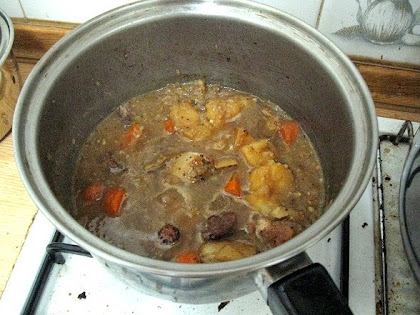"Our leaders are also excellent sheep," Deresiewicz says. "They're timid; they're risk-averse. They're self-serving. They are intellectually underpowered and very full of themselves, because they've been told their whole life how wonderful they are, and therefore, that they deserve everything they're getting."
After James Frey, Somali Mam, etc., can works of non-fiction be considered reliable media sources?
"Perhaps in a perfect world, every publishing house would have an army of fact-checkers — but what can we do until then?" Kate Newman wonders over at The Atlantic. "At the very least, it's important to read more critically, especially for journalists, who perpetuate untruths when they rely blindly on books for fact."
Authors Josh Weil and Mike Harvkey went on a road trip to "little America" and stopped by a few indie bookstores. They had a blast, but were also touched by the treatment they got from the stores:
Many booksellers thanked us for coming. Some had worked very hard to fill seats — and sometimes it worked. A few had worked harder than that, drumming up notices in local papers or arranging interviews with local radio. Very rarely we encountered a bookseller who had done nothing — no publicity, no press, no questions asked, no attempt to get to know the two authors who had driven halfway across America to spend a couple of hours in their store.
Man, I almost teared up.
The "distinguished but difficult" VS Naipaul was reportedly dropped from this year's Ubud Writers' Festival line-up because of "11th-hour requests" from his agent that included a (US?)$20,000 fee. From what I see, flying him in and hosting him in would cost half the Festival's total budget.
"Our cash sponsorship so far this year is less than $100,000, so we can't spend 50K of that on him," said the founder Janet DeNeefe. "I actually rejected some Indonesian musicians because we can't afford them."
Gosh, whatever happened to "Sure, would be happy to mingle, holiday, and spread the writing gospel"? Am I just naive or have these literary giants been around this block so many times that they've become jaded?
Plus:
- Wilbur Smith's vainglorious eunuch Taita returns in his upcoming novel Desert God. Smith's story (here in The Telegraph), however, is no less compelling. Though the descriptions of Taita and the book aren't quite flattering.
- Kua Kia Soong's May 13: Fact & Fiction has been temporarily banned because an actor from the film Tanda Putera objected to being on the cover. But was the movie really made to rebut Kua's previous May 13 book?
- Food writers and bloggers should probably take note of Eater's list of banned words, which includes "foofaraw", "nom", "foodie-preneur", "victuals" and several ways to say "Internet". Tony Bourdain added "unctuous" to the list, it seems.
- How many of you heard about Oscar Pistorius's plan to write a book about "what happened on that day" and were disgusted by it?
- An armchair detective thinks he's finally unmasked Jack the Ripper, with the help of some "cutting-edge" forensics. The dissection of this theory seems to have begun.
Categories:
Book Marks










